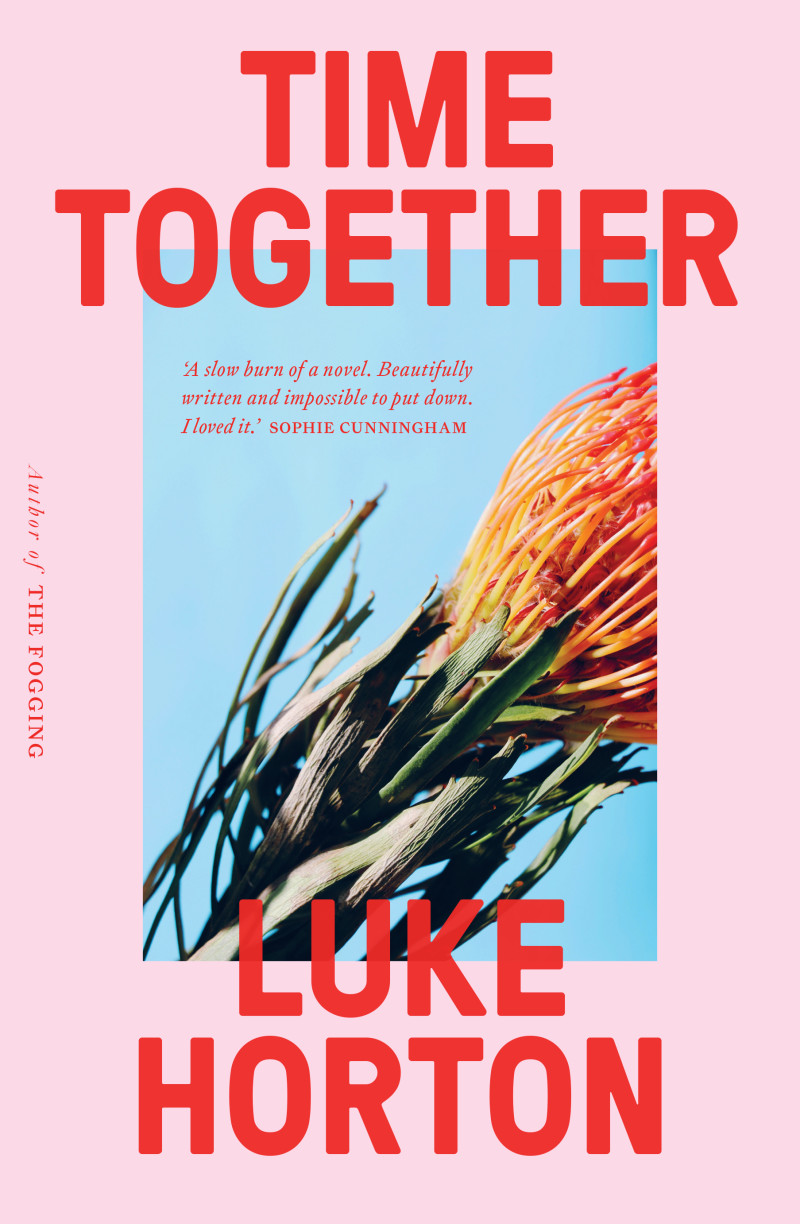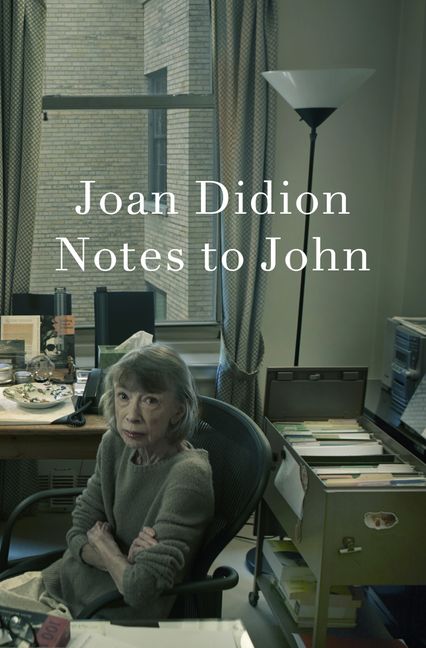Jolley Prize
Sediment
by Tracey Slaughter •
- When you fall, one speaker goes with you. They’ve been daisy-chained around the house, so those on the deck get the same din that’s piped out to the stairwell, a playlist to pound your Docs to. You’re dancing with a vengeance by now, erotic stomps with industrial tread, your hips a counterweight where gravity meets velvet, fingernails raking the air. Someone has spliced in ultra-long cable, so the speaker follows you, to the bottom. But if it’s still singing when it hits, your brain has switched station.
- The landlord who owns your flat owns more in the precinct. Not a single house in his rotten portfolio would meet code. One night, before you are a tenant, you go to a party in another of his holdings and open an internal door, to find that a whole room’s been wiped off the side of the building, like a bomb has dropped. Plaster dangles off the stumps of the gone walls. You wander, with your glass, around weed-woven carpet. Cold moonlight mixes some fairytale in your mind, involving the broke girls who live here. Half a mirrored light fitting holds out a horn. The bassline pulses the inside-out wallpaper.
- You’re proud of your bralette, which is just black arithmetic, some evil formula expressed in lace. Fuck it, you say on the night you fall. It’s a top to sink shots to – you have to get good and cut to rock it. So you preload most of the afternoon, scorch your hair into snakes, pile on makeup that deserves applause. Practice steering around by the bodice, tilting high-speed liquor until your ribs make the attitude stick. Balconette that takes no prisoners. Each nipple an accomplice. Maybe it’s aerodynamic too. You seem to stay eerily airborne the longest and offer the hands of all the others – so many lost air-thrashing hands, falling and falling – nothing to hold onto.
- Your flatmates are heroines, even before the fall. One of them has a room lined with offcuts of crystal, fistfuls of miniature asteroid she splits herself. She can chant the properties arising from each misty rock, talk you through a litany of healing as you stare through their splinters. Her lipstick sparkles with pseudoscience. She sips her water from a gem infused bottle, though the prehistoric pipes mean the house taps frequently cough black. Your castle is mould-glossed, rickety, flaking, but she sets up little votive clusters on each sill. Electromagnetic, they can balance any bad vibes out. When your landlord hikes the rent, and hikes it again, she passes round jasper, for empowerment.
- When you take another flatmate in to plan for her possible abortion, she clutches bloodstone on the walk to the clinic. The two of you have to navigate camped-out old-boy pro-lifers with beating-heart placards – you struggle not to pick the gem out her grip and aim it at them, hard. Missile of shining geode the size of a foetus. You’d think, since she never booked the abortion, she wouldn’t fear the accident was her fault, that secret forces streaming from her womb didn’t capsize a platform, pour down strangers. But that’s underestimating the psychic damage done by the grove of pro-life posters, the stress of passing through a gauntlet of patriarchs waving hellfire slogans aflame with intrauterine light.
- The night you first meet your flatmates-to-be you’re at a pub crawl, a numbered list of red stars on a map passed out before the on-campus starter-gun cracks. Nineteen pubs are on the route but the six of you give up by about the eighth one – the engineering students have started to stage pranks at the intersections, pulling dead ants on red lights, forming scrums around smaller cars, even picking a Mini up by the chassis, spinning it 180 clockwise, so by the next green light the female driver is jammed in her lane facing backwards. Reaching the counter to actually buy a round means pushing through a ruck of drunk hands, the crowd thronged thick so no one’s accountable for fistfuls they get of your tits or crotch. They’re all in costume anyway, a horde of splashed lab coats and League wigs, beers funnelled through plastic masks. Your feet are up off the carpet in The Strand – you’re wedged between a mob of them, steel-toes fluttering, alleys of eyeline in between their backs getting narrow, oxygen starting to wane. It’s not a good feeling, that tide. Your bones feel featherweight, faded, dislocatable. You’re not sure if it’s fear or regurgitated lager that investigates the roots of your hair. You’re wearing angel wings and you can feel their elastic cross-referenced behind you, a sinewy pull-apart equation. When you paddle to the street outside, pushed to a clearing by exiting bodies, one squished ivory pinion has puke trapped in its gauze. You are doing a squeamish job trying to flick the solids to the kerb when a giggly mass of lookalike angels spots you. You slot into their coterie, tag along with them home, slagging lads off all the way. It stands to reason their pad is an ungodly villa, bisected into up and down flats. Two-storey, lace-railed, pilings flagging, little lead petals fluttering off the paint. One tumbledown bedroom has just become vacant.
- There’s a boy you’re into who’s not into you, and a boy into you who you’re not into. You swallow a lot, on the night you fall, hoping psychedelic cocktails will decipher this, and end up in two distant corners of the house, letting each of them put his fingers in you, a moist and steady jab. The process is mechanised, not a bit lyric. They both seem to be running some experiment involving how many digits they can outfit you with. In either case it is so lacklustre you make like you’ve gotten to some plateau, picking up swathes of your hair as you writhe against the wallpaper. You wonder what your bralette has done to the wiring of that hot slut, your heart – surely all its bloody imaginings ought to lead somewhere. You let one of them put their dick in you too, though it doesn’t make a difference which one does. It doesn’t make a difference which one is with you afterwards, either, when the street outside is strewn, and you can’t understand why the two things that seem to be splashed everywhere are blood and shoes, solo shoes like deities launched them centripetally among the clots. And bottles – but a strange wash of conscience has rushed through the bodies in the crowd who can still walk, so you see many people teeter over in chilled slow-motion to pick up glass or pack their grip with pulped cans as they leave, shocked by luck they’re not likewise crushed. Boys cross into and out of your line of vision but which ones doesn’t count – it’s the sirens, and later the officer who tells you the six of you aren’t all breathing that you need to listen to.
- Your room became vacant because the last girl who lived in it got her glass spiked at the uni bar, and though she was carrying quartzite, it could not stop the twilight from becoming metaphysical. It had been the annual toga party so all the flatmates had been there looped in sheets they’d be laundering for days trying to strain out the ale spat at them, showers of hops and sputum a legion of boys launched, heads back, until the dance floor felt ankle deep. They’d made a pact to stick together, but she’d fallen for someone, and begged to break it – her mascara was shattered yet she’d seemed in her right mind. When they found her the next day she was propped against the wrong door – whoever the alchemist was had dumped her back at the address, at least, but hadn’t guessed the entrance. She was sticking the white-headed safety pins that had fastened her toga into her flesh, probing the meat of her palm like she might head wristwards. The sheet was not salvageable. They’d unwound it, along with any questions. Balled it into the wheelie bin that belonged to the old lady on the ground floor. The red lid on theirs was always overflowing.
- When you move in you strike up a bond with the dainty old lady who lives below. She is put together from a cycle of blue dresses installed with very flimsy bones, and under her moth-mottled cardi she’s riddled with liver-spots. But she’s still in possession of stellar eyes, and on her walls – when she asks you in for Earl Grey she tremors into pitted china – there are photos of her afloat, head and shoulders, in tinted sittings, an oval haze she angles her gaze through like a screen idol. In the portraits she has colossal hair. Under her gravy-braised relay of smocks there’s no sign of that long-ago décolletage. But she’s chipper and sweet, if no longer pin-up, and likes you so much she gives you stacks of old gowns, vintage numbers that are worth a bomb, although they reek of ancient potpourri. When she donates them she clearly doesn’t believe you’ll ever actually put them on, so every time she spots you in one she issues a giddy little shriek, commands you with a croak to give her a twirl. It’s the least you can manage. She almost claps her wig off. Once she gets so excited you think she’ll tip her walker. Not too many days before the fall, you orchestrate a floorshow to say thankyou for the frocks, park her on a chair by the grand front entrance and all six flatmates parade in her cast-offs up and down the ornate stairs, striking poses against the palatial railings, making extravagant swerves, sashaying past each other with catwalk flourish. You blast something brass band down the flight, and her barely legible bones conduct. She cries so many cataracted tears you worry she won’t recover. You vote her in that night as your seventh flatmate.
- It’s not like you want to live in a slum – you do clean. But efforts to sanitise always become archaeological. The kitchen bench, for example, is pebbledash, and long ago formed its own ecosystem. You do scrub, but there’s no way it won’t get algal. Everything you bleach reverts. You can smooth the blisters in the brocade wallpaper, but even a drizzle means you watch them bubble back out one by one. Stretch marks quiver the twelve-foot stud. The roseate cornices grow black icing. Promises to coat your lids with frost hiss in through the fluted sash. In a northeasterly, the whole structure whispers a dream of lifting delicately skyward. Swing it to a southerly that noise rises to an apocalyptic groan. But the love you have for the place runs in inverse proportion to all this. It will always stay the house you long for most. When there’s a ceremony, after the fall, to bless it, and cleanse it – just corporate lip service, because the new owners are a cutthroat fleet of suits specialising in commercial law –you won’t be able to accept the invite to watch. If you were to say a few words, as requested, they’d be something like the string of vile swears the six of you shriek from room to room, off-pitch, hoarse with chlorine and bucket-echoed, when you spend a whole day communal power-cleaning, as if it’s spring.
- Nobody passes the Bechdel Test. Not even the flatmate who wants to be a filmmaker, who casts you in screenplay after screenplay which she mostly rehearses and shoots in-house, girl-on-girl plotlines that tremble with handheld gothic. She moves you around like candlelit figures in a dollhouse and the corners of the villa collude with extra shadows, manifesting smoky strata you look all too modern and B-grade against. She likes symbolism – if you have any lines of dialogue they’re always heavily sculptural, require you to freeze or wave diaphanous sleeves like a harbinger. Still, you try to follow her scripts, coming adrift in the floaty costumes she likes, delaying the angle of wrist and iris so everything feels foreboding. They’re perfect clips for the coverage to sample later, when the fall’s made them look prescient, the camera sweeping from the flimsy deck rails to the moon, prophecy all through your eyeliner. Out of respect for the dead, though, they don’t replay the reels of kissing, the long luxurious pashing sessions she’d coach you through, locked to each other on cue, suckling plushly with nameless neutrality, messing up your poeticised lipstick, wishing like hell the narrative in your mind wasn’t always chattering with boys.
- Stable condition is a phrase the hospital will use, once you’ve fallen, when you’re haunting the wards, not sure where in its multi-level linoleum to visit first. It is about the way the bodies have come to rest within themselves on landing, and hinges on whether their soft and jointed and organic tissue fits back in its packaging. It is about the transparency of tubing by the beds, the gleaming length of circuitry the fluid is sliding. It is to do with the question of door or curtain between you and the monitors, the question of loved ones drinking tea or tears in the sharply illuminated halls, the reinforced glass above Do Not Enter designed to square off the blue-tinted pain inside. It is nothing to do with what the landlord is looking for, on his frequent drop-in inspections, the way he prowls the premises, not tapping sills, or palpating spongy boards, but checking that six girls are getting his gist, picking up hints that he could always raise rent, clocking the friendly ramifications of his under-the-table game, making sure you can feel the way his unannounced tour of your six bedrooms soaks up whatever skin-level detail he pleases, at the sleazy speed his half-smile likes to underline.
- Boys tend to come around looking for one girl, but if she isn’t in, they hang around. You can see it on their faces, the realisation that the house contains copies, the look up the stairwell, wide-angle, that takes in alternatives – flicker of hair or silhouette, flash of grin or footstep, assorted burst of other girl figments. You can feel them weigh up the trade, their gaze rake the options, cut and paste. And you too, you’re one, a sub, a switch – you can feel their evaluation travel you, run calculations on shape and tone and curve. They like to lean on the door frame, casual, give you a cheeky nod, comparative. And you’re a good host, you’re a decent stand-in, there’s nothing stopping you from opening wide, gesturing up the off-white bridgework to the landing, that platform from days gone by, when over the pale imperial frame all maidens of the house might once be seen draping, arranging themselves felicitously to meet the notice of a gentleman caller. But you’ll go to see if there’s piss in the fridge, laugh at his banter, and wait to see who he picks. Then probably, if it’s you he’s staying to mess with, you’ll lie and wonder through the whole non-event whether it’s you or the villa who utters such antipodean rattling. After the fall, it will feel like there’s an eerie continuum between the two – that zoned-out bedroom wall bang as you’re boarded, and the storm front sounds that build on the landing as boys you don’t remember inviting reach critical mass.
- The flatmate who first found the house has a story about omens. She says her viewing was the last in a booked-out day of hunting that had nearly crushed her: she’d seen hovel after hovel you wouldn’t want to keep a dog in – fly-struck carpets, sinks cockroach cluttered, the radioactive feel in the air that crystal had been cooked – and at one appointment she’d gone clanging down a flight of metal stairs to shake off the owner whose creepo questions had made her blood run cold. By the time she got to your house she’d wanted to weep at the mangy mansion, all its bay windows and trimmings of crocheted wood. Sure, she sized the landlord up as a prick, but the bond was way lighter, the weeks in advance less crippling, because he liked his transactions to stay off-book. She’d scribbled her name down, pretty please, hell yes, used every shred of charm she had to underscore it as urgent. He said he’d let her know. By the time she’d got home she realised she’d lost a favourite earring trudging round that longlist of dumps – the omen was (other than the fact he’d called back, said yes) on the day she moved into the house the earring was right there outside on a ledge, a rose gold shimmer left to her by her dead sister. She was astonished to see it again, remembers catching its glint while she was dragging in her black bags and being disbelieving, closing in on its tiny insistent shine on the sill, a pulse-racing sign. In most of the photos its aurora softly rises through her hair, rose-gold lengths at the nape she broke. On the night she dropped wearing both, but one wasn’t found till the pile up of injured was cleared, in someone else’s palm, curled in fingers that wouldn’t have known what they’d clutched for, what a hook on nothingness they’d caught. Brief piece of glistening that couldn’t save them. The lustre of zero, unalloyed. Whether it was the earring she originally lost did not, by then, seem important.
- The very first thing the old lady gives you is not a dress but a deportment book. It’s a manual from her finishing school, features lists of etiquette dos and don’ts, instructional models posing in attitudes of chic, demure but vixenish. The six of you get hysterical over it, raving through its arcane questions – ‘Are my gloves the right length? ... avoid the animal paw look by allowing space for the bare arm to show between glove and sleeve’ ‘Do I look plastered? ... one accessory can look superb, two nice, three or more may give the plastered look.’ ‘Do my separates part in the middle? This is very bad dressing indeed, particularly if a bare midriff is revealed; a full-length slip should always be worn.’ You camp it up around the house, acting out directions for attractive entrances and exits – ‘Do you creep round the door looking at the woodwork or the handle, then at the floor or the ceiling? Or perhaps you rush in making a commotion, letting the door swing wildly? Keep tall and straight as you open the door, and at the moment of disappearing, incline the head slightly with a smile.’ All six of you catalogue every banned mannerism, cunt-flash your way through lessons in leg-crossing, cackle fuck-yous at the tightrope act of looking ‘expensively feminine’, crash like beasts through the art of ‘ascending and descending’.
- You lose one of your flatmates not long before the fall when she goes overseas to visit her dad. She’s never met him before but the reunion is a hit and she sends postcards on the view from his penthouse, the sizzle of lights across a dark-lake city, lists the cool sites they tour and how Daddy spoils her, making up for lost days. She stays on, ecstatic. Then you get the strangest letter, a nine-page epistle that confesses she’s sleeping with him. They should just let her room go, she’s found her true love. None of you really know what to do with this, except sit on the balcony, and drink. It’s the reason, on the night, her emptied room is the only one open.
- The deck has always looked like a gallows. It’s where the floral ironwork stops and battens of another era got slapped up. But you can’t help loving the threadbare wood, so dappled in places it feels like cloth. It must have started as a fire escape, a shimmying exit you like to think of daughters scaling down long ago, soft-shoed with mutiny. Now it’s made of nine-inch nails and petals, intergenerational splinters. You have the sense to feel its glitches widening, that night, under the dance – it’s early enough to raise a shout, demand everyone herd back into the kitchen, that’s it, slip the deadbolt, wedge it with the butcher block, the speaker buzz, so only the moon’s allowed out. Before the point where any chance of your voice being heard dissolves in the horde.
- Sometimes a dad will call in to do the odd job, tack something up, bog a gap, fix something munted. Mumble some awkward off-key jokes, let their look veer, seedy, hang around too long. You hold off calling it until you’re sure. Cue one other flatmate to get confirmation, wait to see what her eyebrows do, the next time he shuffles over of a Sunday, gives a close-up demo with hammer and nail, nicotine cruising your neckline, tool-belt nudging. A slow-mo eyeroll of not-fucking-again is what she gives. More and more you let those chores go. The night of the fall the dud washing machine is control-panel high with ice and cans, where all of you tugging only managed to drag its dead weight as far as the landing.
- The medicine cabinet is shallow, its mirror meshed with cracks. You think it dispenses ghosts. You close your eyes if you have to prise it open, so you don’t see the shards of yourself swung wide. You pop the dosage you’re slipping from its sleeve, and vacate, backing from its de-silvered surface – you don’t like the diagnosis, but you’ve learnt to tip your head, swallow dry. There isn’t a crystal that can help you feel safe in this corner. The spiked girl who used to live in your room tried recovering, but one night crawled into the shower box stoned, her passed-out trunk tipped over the drain so the water built to the cusp and gushed. They fished her up, she didn’t die, but there’s some kind of aura left – it doesn’t help that the steamed-off wallpaper roses dangle in shreds from the stud, swatches that like to sigh at you as they buckle. The backed-up water is found, at the inquest, to have soaked panels, caused warp and sag. The weakening left by her crying was, in the end, structural. In the mirror, you could always feel the shiver of something she’d tasted, a trickle-down damage.
- Your first floor flat gets the regal door, the drama of the stairs – the old girl on the ground gets the servants’ entrance. At the base of the staircase there’s a gallery of internal doors but they’re all walled up her side. There are blocked doors to a zone stacked with landlord stuff too – she zips up her coral-ringed lips with a wink when you speculate – pays not to know, dear, what falls off the back of trucks. He bought her out years ago, fleeced her, but at least he lets her rent back her sagging corner. She’s known this house since she was a little thing in plaits – once she drifted as gentry above, while the ground floor served as a doss house for returned servicemen, the amputated and shocked and gouged and patched all lining steel beds in the hall, the lower verandah glassed in to harbour prone recuperating bodies. You like to think of their khaki holograms, more than the available breed of real boy, the soft wounds seeping through their uniforms, the fevery silence of all they need to unsee a tearless film in their eyes. You like to think they would have recognised the sound, the night the centreline cracked, would have staggered from the stranding of their beds to greet those who would not be getting back up.
- You can’t make memories when you fall. There’s no point of view – or instead you get all of them, blown through your body at skull and senses in a vertiginous 360 rush. You had a kaleidoscope when you were a kid, a cylinder you’d twist between your eye and sunlight, and a myriad of beads would explode your iris in a cascade. Each blink had incendiary symmetry – you’d like to make the fall like that. You’d like to trust that a pattern was going to be gently irradiated from the plummet, to see the air sort screams and dust and limbs out into an intricate fluttering. You’d like to make the sound less godless, more like the sand-soft brush against that lens. Like when you breathe again, and twitch, from the pile where infinite pain is sown, all the seeds sift into something star shaped.
- Do not enter is also the label on the tape, the red-white diagonal straps that rustle across the house when you go back, double-knotted at the trim, a plastic cat’s cradle. The old girl has been removed from the premises, that’s all the officer will say. You never find where she’s been installed. She would have liked the look of those streamers. She might have thought it was a ticker-tape parade. Sometimes she’d go a bit batty, wander the lawn in her petticoat, waving a tea-towel like a D-Day flag, chanting, the lads are coming.
- Your pregnant flatmate thinks she sealed her fate just considering a termination. You sit in the hospital with her, and do what you can with mauled hands, to help her stop raving about imagined black marks and focus on the screen, the sonic sheen that spreads from the circling wand. The tiny grains that still hold on inside her, their precarious sparkling.
- The flatmate you like least rings you long after – she is loaded and has lost her car. She’s on new meds and got herself trashed and can’t remember where she parked it. It’s 2 am and you taxi out, locate her wandering round the streets, stroke some order through her puke-streaked hair, listen to the sentences her high has smeared, full of remembering you can’t do, flashes of distended night you can’t avow. She’s luminescently drunk. At one point she’s so shrill you slap her. But she stays in step as you hunt for the car, only sobs again when you find it, lets you pat her down for the keys, pack her mutely in the passenger side. Sings along to a track on the drive that once blasted hell-yeahs out your body, through a speaker whose black noise never gave a sign how the night was bound to cave in.
- The charm school manual had so many pages of tips the six of you had taken the piss out of – ‘an elegant variation in taking off a coat’ or how to ease open buttons ‘with an air’. You picture the jaunty pen-and-ink sketches, the model lissom in jet stilettos, now that your minor injuries have dragged out, make you flinch through skeletal routines. The one that lingers longest is the two-page layout on negotiating stairs – ‘Young woman, you should go up like a bird in flight, lightly, daintily. With exquisite fingers you should raise that gown only an inch from impeccable slippers. The whole body is a weighty thing when it comes to giving it a vertical lift. But you should go up and down like a dream, slowly, taking your time, feeling for each tread’.
- The night you wear angel wings back from the crawl all six of your bags are packed with glasses, pints and handles you’ve lifted from the pubs, that jangle as you crisscross streets – collateral for none of the bars doing shit to keep you safe. You shatter all yours though, tripping where the lanes split to expressway, the other five flitting ahead before traffic pours the gully, a flood of headlights that pins you where you’re dropped on blooded knees, concussed at the glare oncoming, reels of it, bursting your gaze with stars of speed. You freeze there, on all fours, horns strafing, car gusts sucking your shouts and wings. They’re squeals from the black verge, your five flatmates to be, and when the lights change and the lanes empty out, they’re a scurry of cries and fingernails that dash through the distance to grasp you.
- In a piece of crystal there is everything that falls – shirt and shroud and bough and spit and map and lace and bone and smoke and hair and cross and ash and stain and ice and wail and dust. You keep a slice on you forever, vessel singing to the sediment.








